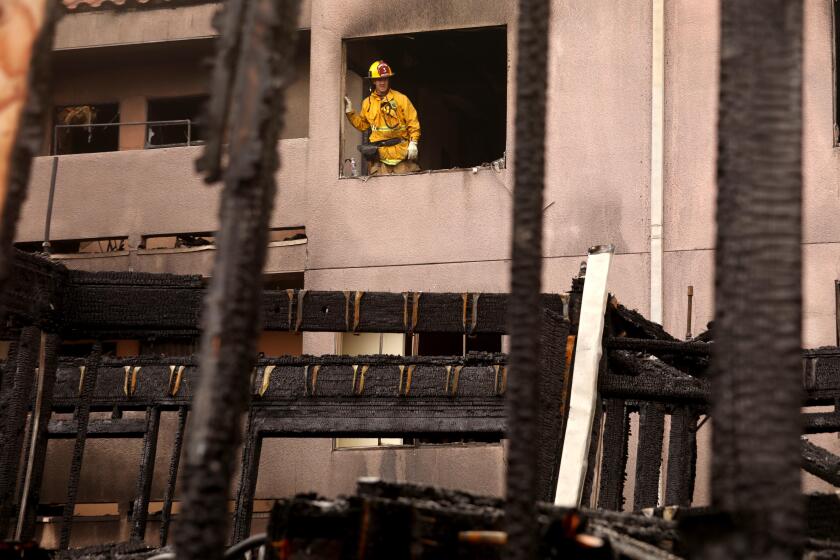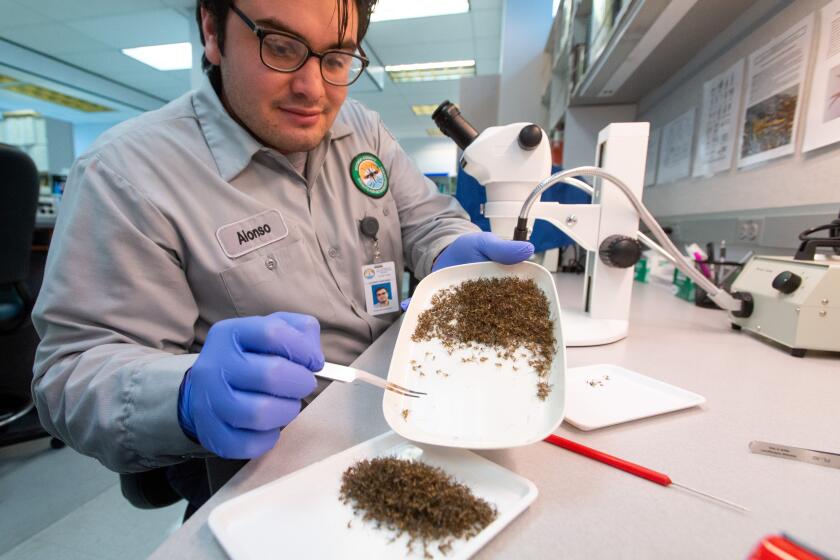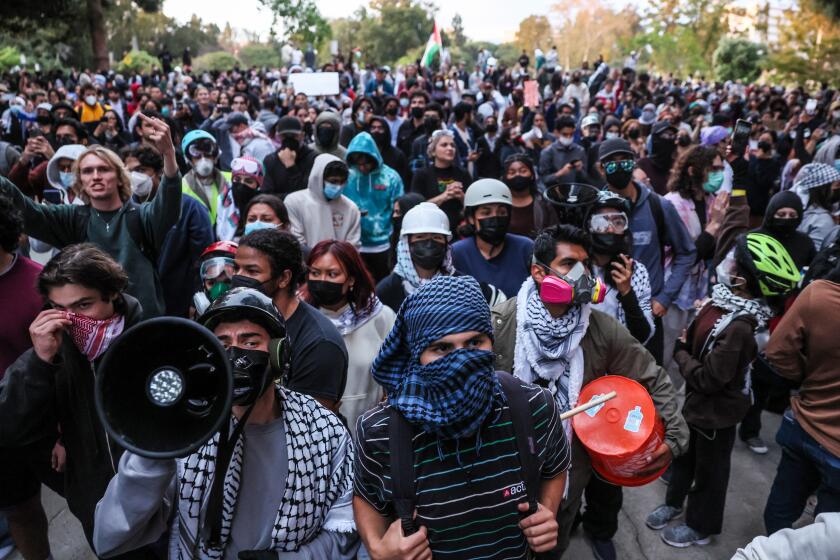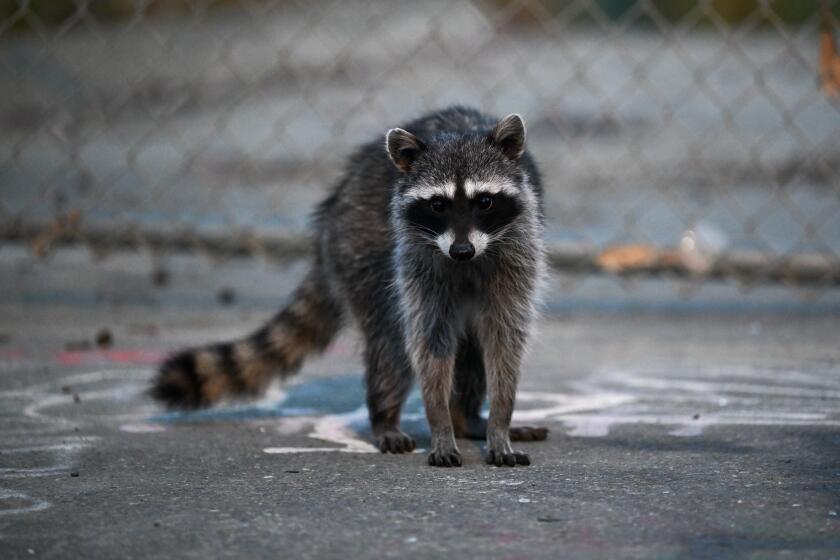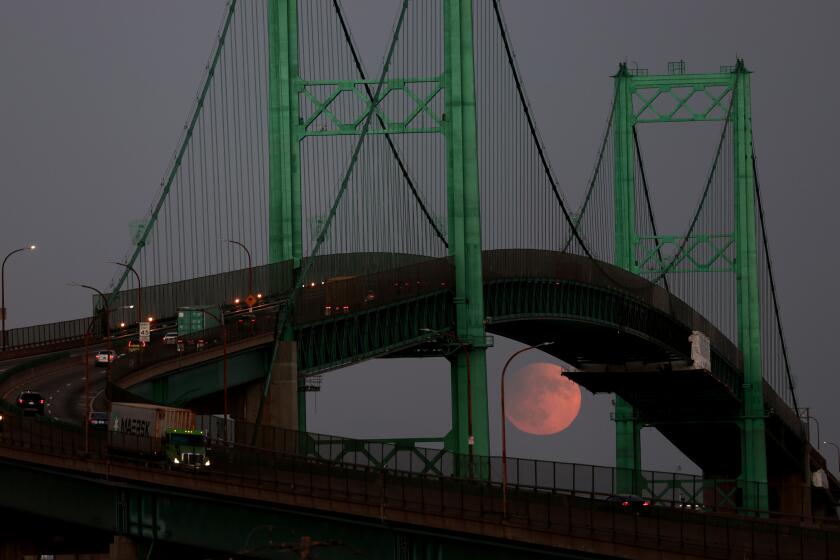Johnnie Cochran, Word Cop
Long before he defended O.J. Simpson on murder charges, Johnnie Cochran prosecuted Lenny Bruce for alleged obscenity. Even in the more genteel days of 1964, the young deputy city attorney couldn’t convict the notoriously foul-mouthed comedian. In a 1996 memoir, Cochran belatedly conceded that his attempt to do so was contrary to the 1st Amendment.
Last week, the U.S. Supreme Court heard another case that threatens the 1st Amendment, this one featuring the famed attorney as plaintiff. The issue in Tory vs. Cochran is straightforward: Can Ulysses Tory, who was found to have defamed Cochran, be permanently barred from saying anything, anytime, anywhere about this legendary lawyer?
In 2002, Los Angeles Superior Court Judge Ronald M. Sohigian issued an order that allowed just that. Later, California Court of Appeal Judge Miriam A. Vogel (joined by two other jurists) upheld Sohigian’s ruling. The California Supreme Court declined to review the case. The conflict erupted when Tory, a disgruntled client, and a troop of his supporters began waving placards outside Cochran’s office and the Los Angeles Superior Court. One sign included a vulgarity and the clear implication that Cochran had cheated Tory. Others read:
“Johnnie is a crook, a liar and a Thief”
and
“Can a lawyer go to HEAVEN? Luke 11:46.”
Irritated, Cochran did what lawyers do. He sued. Tory represented himself, and the trial court found Tory’s statements to be false and malicious, and it determined that damages would be an inadequate remedy. It ordered Tory not to stand or assemble within 300 yards of Cochran or his office and to refrain from picketing Cochran or his firm or “orally uttering statements about Cochran” or his firm. It’s hard to imagine that Cochran’s fame and fortunes would be seriously threatened by Tory’s outlandish placards. After all, Cochran is a man of power and privilege. He can readily survive malicious barbs hurled his way by life’s little people.
Far more serious than Cochran’s misguided decision to sue, however, is Sohigian’s injudicious order and Vogel’s ill-conceived opinion affirming it. Both war with basic 1st Amendment principles against prior restraints on protected speech. Sohigian’s decree, remember, was not only limited to restraining defamatory expression, but also barred Tory from making any statements about Cochran or his firm until the end of time.
In the U.S. Supreme Court appeal, 15 media organizations, including the Los Angeles Times, filed a brief urging reversal. In the main brief, Tory’s attorneys -- Duke University law professor Erwin Chemerinsky and lawyers Gary Bostwick and Jean-Paul Jassy -- argued: “Never in the almost 213-year history of the 1st Amendment has [the Supreme] Court approved an injunction in a defamation action.”
That history is not likely to be upset by this case either. UCLA law professor Eugene Volokh is among those predicting that Sohigian’s order will be overturned as needlessly overbroad. Volokh offers a hypothetical statement -- “I think Cochran is evil because he represented O.J.” -- to illustrate the problem. As the law now stands, any American other than Ulysses Tory could opine on that without fear of legal retribution. Incredible.
During oral arguments on Tuesday, the justices grappled with the absurdity of a ruling so sweeping that it not only prevents Tory from saying things that are demonstrably true about Cochran, but could reasonably be interpreted as a gag order on Tory’s attorneys. Referring to that peculiar possibility, Justice David Souter asked Chemerinsky: “You’re in trouble too, aren’t you?” The question said it all. At another point in the arguments, Justice Sandra Day O’Connor turned to Cochran’s lawyer, Jonathan Cole, and openly announced what all nine justices knew -- the order is “clearly overbroad.” Frustrated, she then asked, “What are you going to do about it?” Sensing trouble, Cole suggested that the order could be more narrowly tailored. Amazed by the concession, Justice Antonin Scalia chimed in: “You’re conceding that it’s overbroad?”
Cole backed away, arguing that although he did not think that to be the case, the justices apparently did. Then, by way of feigned flattery, Scalia added: “Very perceptive.”
If the oral arguments in the high court portend anything, the judgment against Cochran will be unanimous. The 1st Amendment would be worthless if comedians and critics could not rail against the high and mighty. That lesson is as important to remember in 2005 as it was in 1964 when Cochran appeared in L.A. Municipal Court to prosecute Lenny Bruce for word crimes.
More to Read
Sign up for Essential California
The most important California stories and recommendations in your inbox every morning.
You may occasionally receive promotional content from the Los Angeles Times.



